CHICAGO ― With some fitness regimens, that first trip to the gym can nearly kill you.
Pilates, with its emphasis on core training and an abundance of moves, works the other way.
“The first time is almost the easiest,” says Alycea Ungaro, owner of Real Pilates in New York (realpilatesnyc.com and author of “Pilates: Body in Motion” (DK Publishing). “It gets harder after that. Once you know what to do, the bar gets higher, the demand gets harder. You see things you’re doing wrong and you fix them. You work harder.”
Ungaro, who has been teaching Pilates for almost 20 years and opened her first studio in 1996, says Pilates is one of the most adaptable forms of exercise.
“We have exercises for people through every decade of their life or their condition, whether they’re triathletes prepping for an event or people recovering from injury or postpartum,” she says. “It’s a very malleable means of training. You can make it as hard or as easy as you wish.”
Ungaro says that the classic Pilates mat routine is known for being effective in changing one’s body. But many people find the complex choreography and multiple position changes too difficult to keep up with, she says. So she suggests trying Pilates as a circuit.
“By using just a handful of key moves and reducing them to their most intense positions, Pilates can be both simple and effective.”
This six-minute circuit can be repeated three times for a thoroughly challenging 20-minute routine, she says. Take a 30-second rest between each full set.
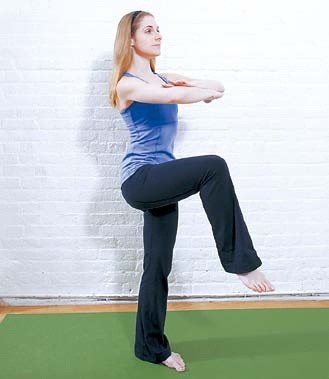
1. Warmup: Knee swings
Stand tall with your legs together tightly. Keep your heels together and toes slightly apart by squeezing your glutes and hold your arms ‘genie’ style ― forearms crossed at chest height. Begin quickly lifting one knee up at a time, replacing them just as fast and lightly as possible. Continue for 60 seconds. Hold your body still as the legs work quickly and push off the floor with each lift bending the knee sharply into the body.
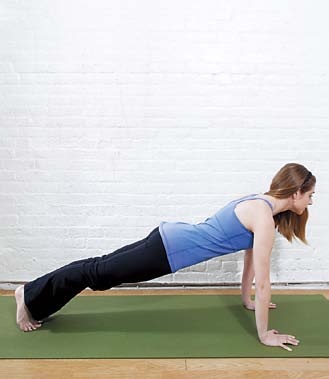
2. Pilates pushup
Establish yourself in a pushup position: hands under shoulders and legs long and outstretched. Hold the position for 60 seconds. Make constant adjustments to your form without moving your hands or legs: Lift abdominals, keep neck long, press hands strongly into floor. Lower down to the floor to move on.
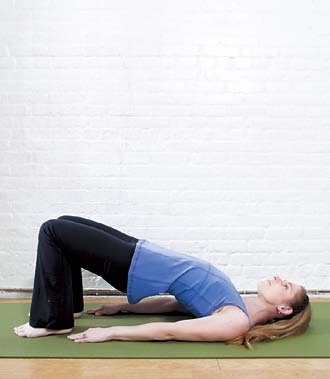
3. Hundred
Lie flat on your back on a mat or padded surface. Begin with both knees into the chest and curl your upper body up to hug the legs close to the body. Carefully extend the arms and legs forward: legs to a 45-degree angle, arms alongside hips. Hold abs strong and scooped for 60 seconds. Make your whole body taut and tight throughout.
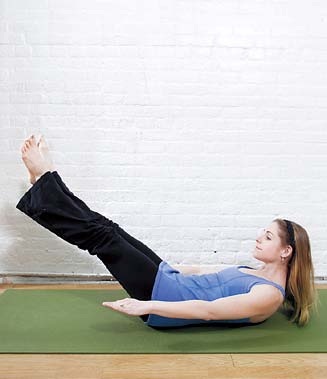
4. Shoulder bridge
Lie flat on your back with knees bent and feet flat on the floor, hips width apart. Press your arms down alongside your body and press your hips up high. Aim for a straight line from shoulders to kneecaps so that your spine remains long and not overly arched or rounded. Hold for 60 seconds, pressing your heels strongly down into the floor.
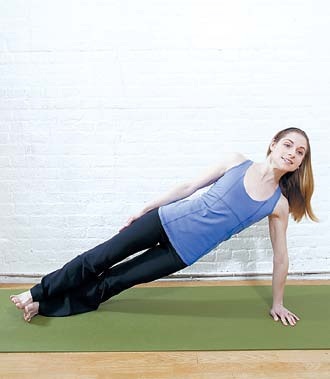
5. Side planks
Begin in a pushup position and pivot onto one hand, rolling onto the outer edge of the same side foot. Stack your legs and entire body so you are in one long line balancing solely on the hand and foot. Hold your core strong without letting your hips sag or lower. After 30 seconds, pivot through a pushup position to complete the second side. Lower gently to finish.
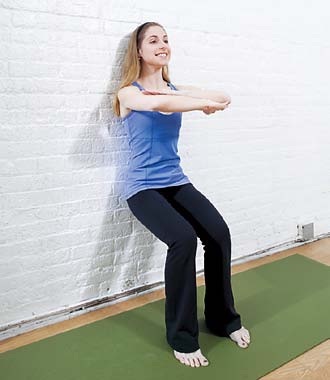
6. Wall sit
Stand with your back to the wall and walk your feet out keeping them hip width apart and facing your toes straight ahead. Slide down the wall until your knees are bent at a 90-degree angle. Keep your hands across your chest, and your hips, spine and skull against the wall. Hold and breathe steadily for 60 seconds with your heels pressing down into the floor. Slide up smoothly to finish.
By William Hageman
(Chicago Tribune)
(MCT Information Services)













![[Weekender] Korea's traditional sauce culture gains global recognition](http://res.heraldm.com/phpwas/restmb_idxmake.php?idx=644&simg=/content/image/2024/11/21/20241121050153_0.jpg)